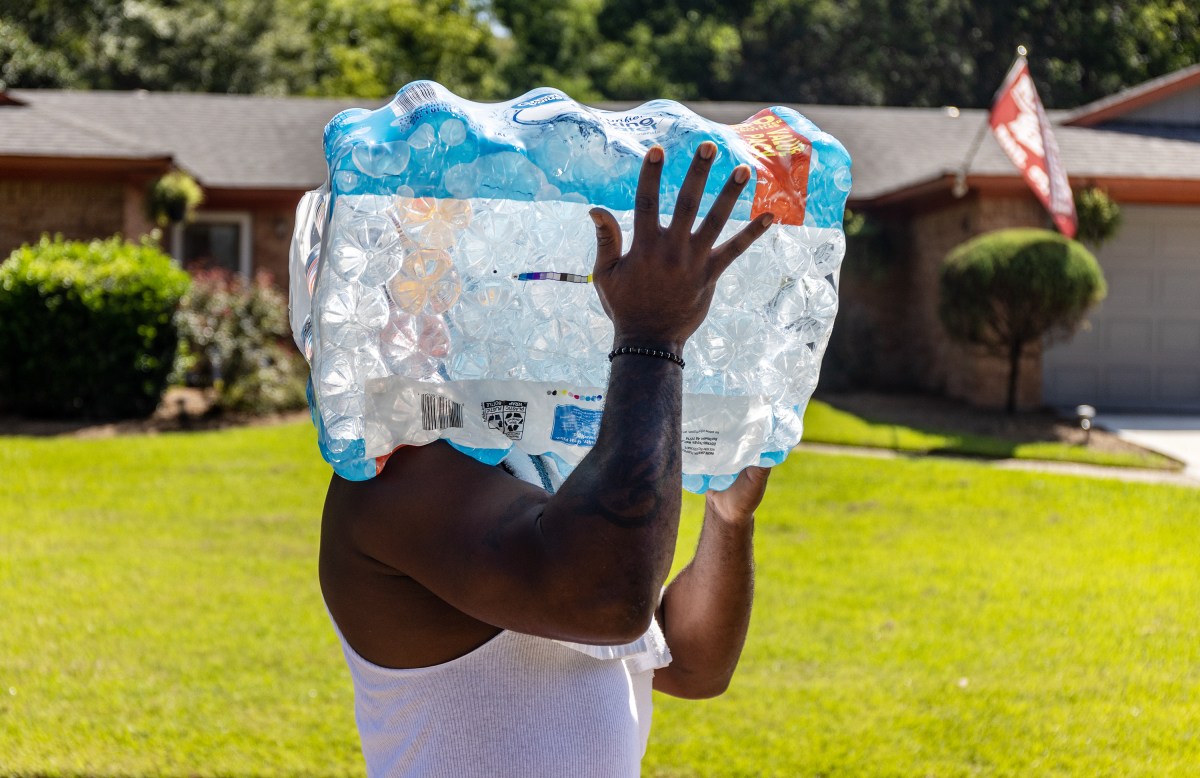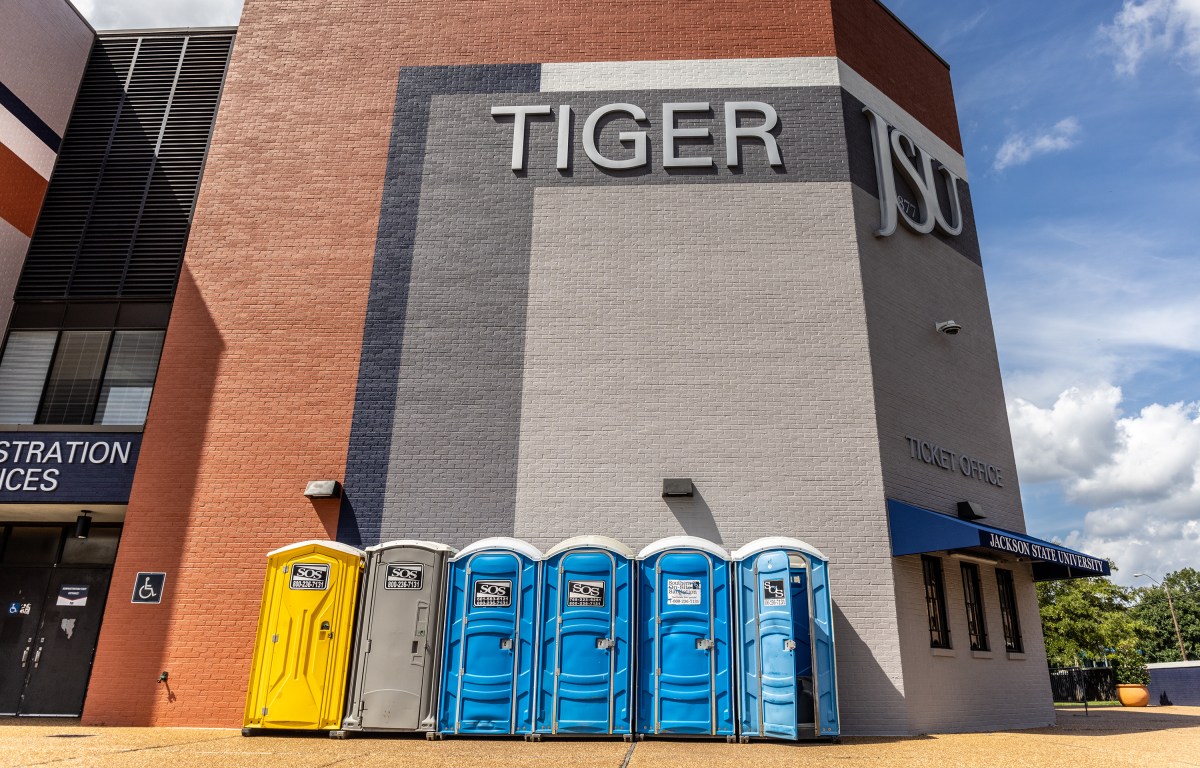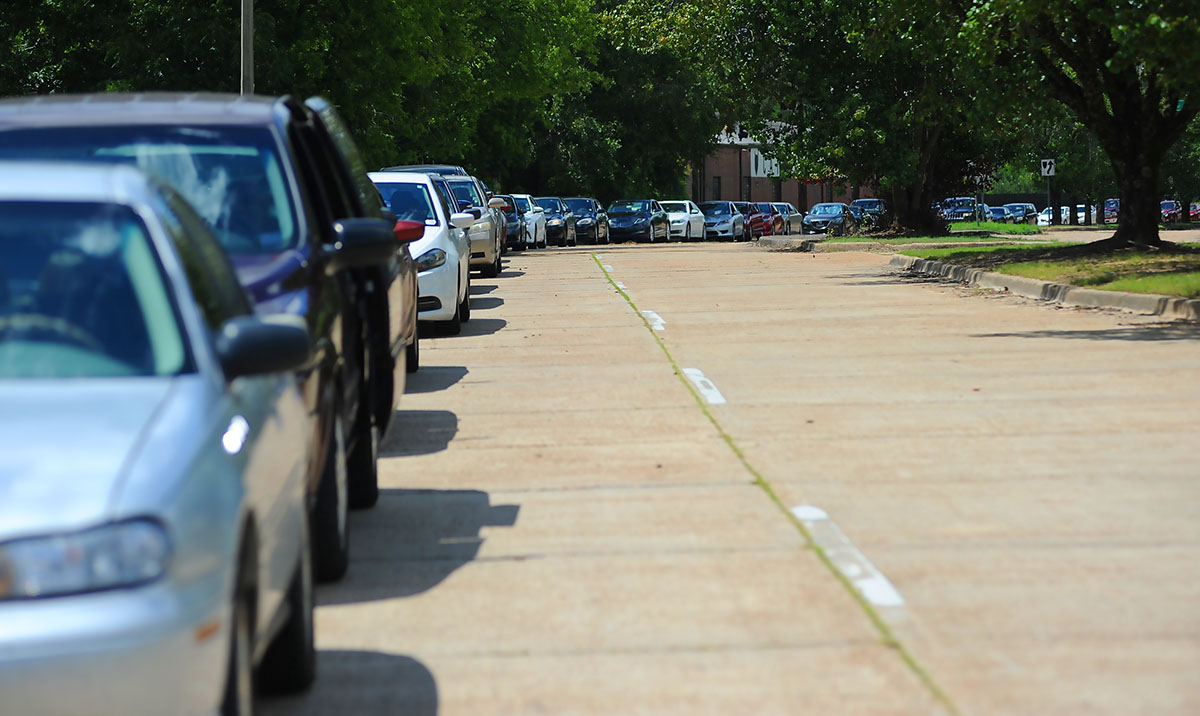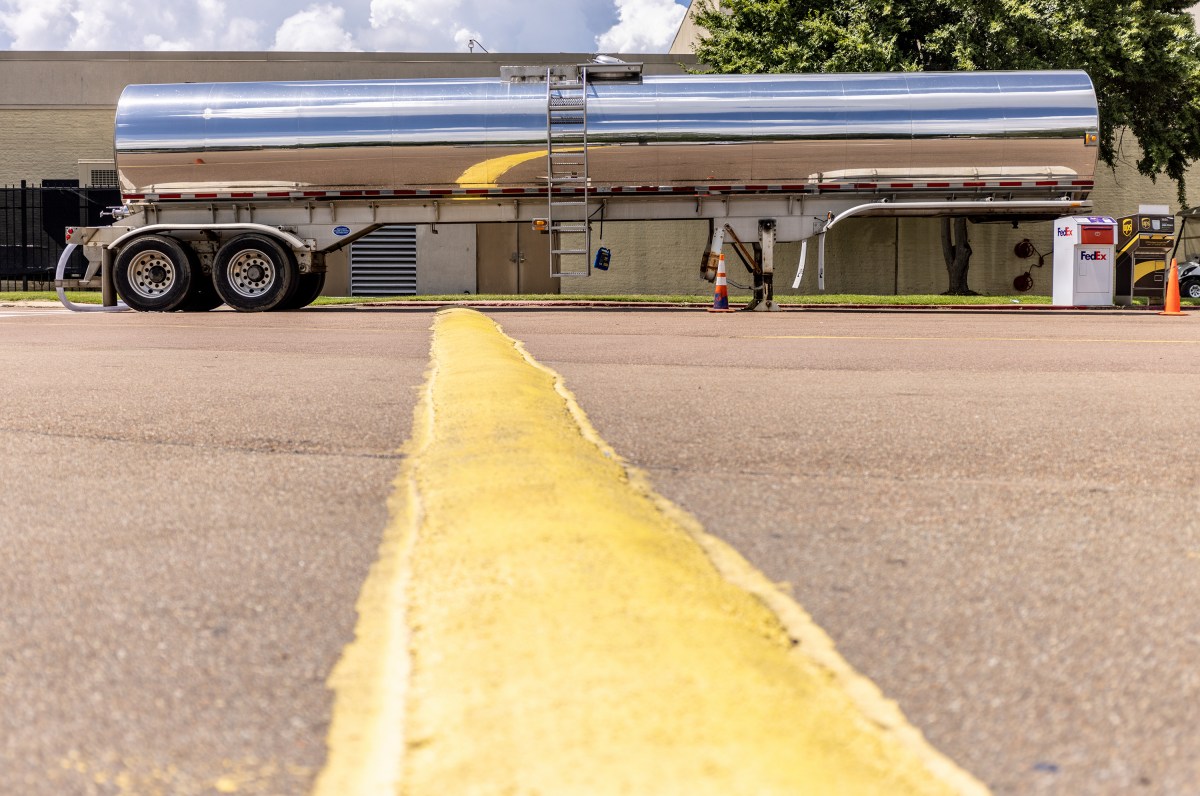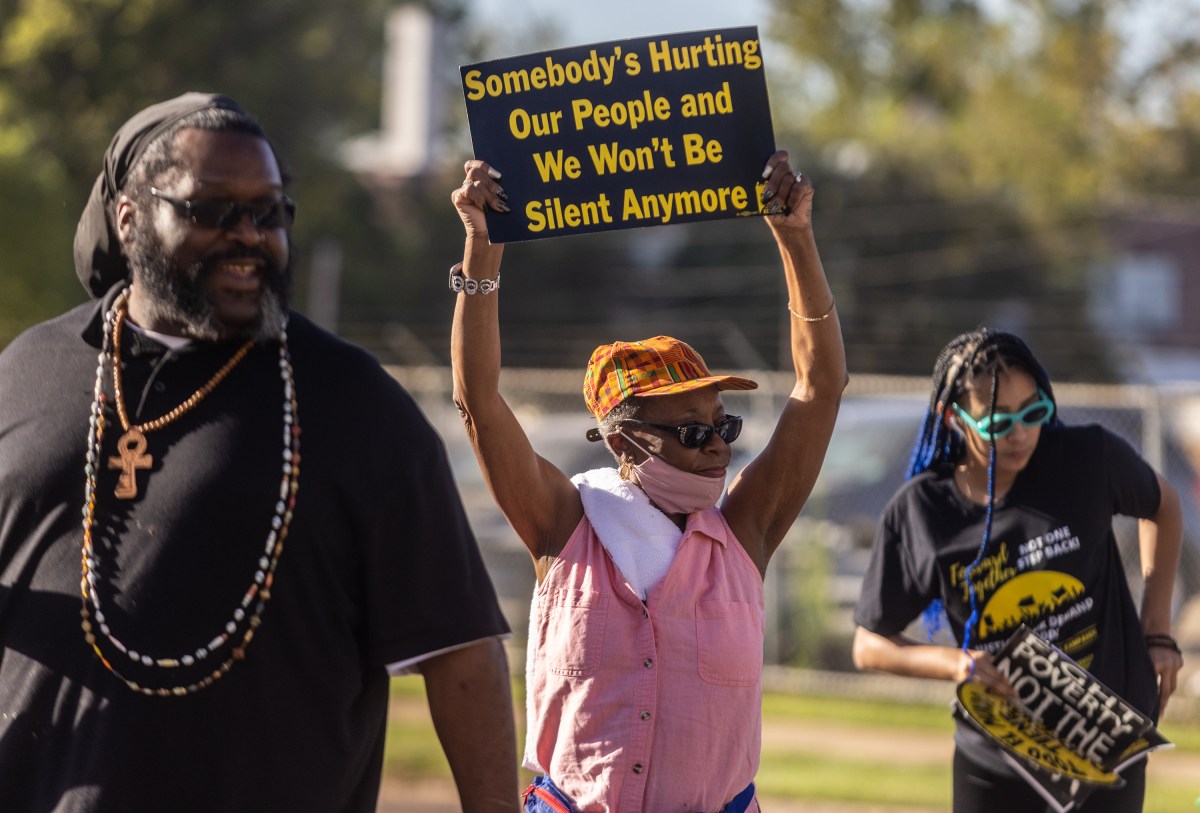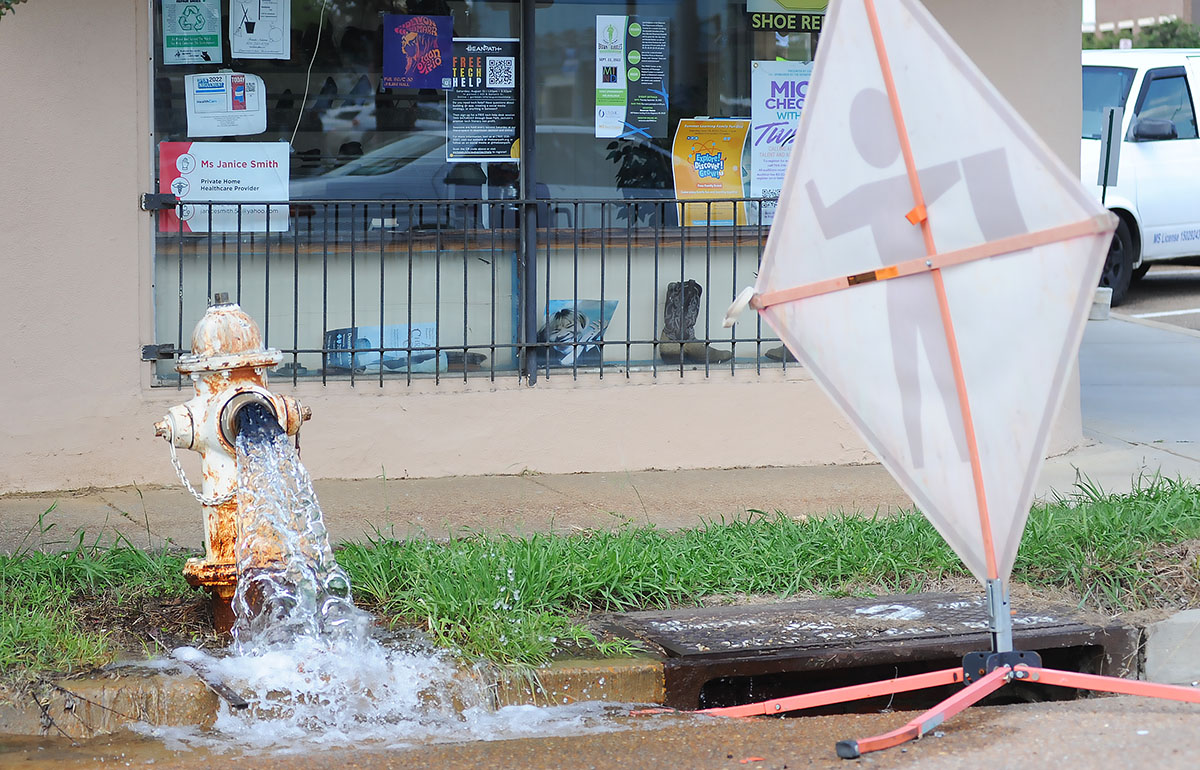Mississippi News
Jackson water: The mystery of what’s next
The mystery of what's next for Jackson's water system
As Jacksonians prepare for the winter, and the ominous possibility of another water system failure, they're also coping with the looming uncertainty of how their drinking water will be managed in the years to come.
“I really don't know what to expect,” said Kathy Sykes, a lifelong Jackson resident and former state lawmaker, about the future of the water system. “Problems with our water system are going to be magnified once the cold weather sets in.”
On Monday, Mayor Chokwe Antar Lumumba said the system remains vulnerable to the winter weather, which last year froze equipment at the city's main treatment plant and shut off drinking water for thousands of residents for over a month. The cold weather led to a citywide boil water notice in 2018 because of bursting pipes, and caused similar issues in 2014 and 2010 as well.
For now, the federal government is leading discussions over the long-term plan for the water system, with the Department of Justice negotiating a settlement with Jackson's lawyers over the city's drinking water violations. Yet the status of those talks and what potential outcomes they might yield are hidden from the public because of a confidentiality agreement between the two parties.
Similarly, Jackson has a “very-detailed” spending plan the city has shared with the Environmental Protection Agency, but which it can't share with the public because of a different confidentiality agreement, city officials said.
In the meantime, Sykes and others continue to see abrupt interruptions to their water connections. Since Sept. 15, when the state lifted the last citywide boil water notice, Jackson has issued 30 boil water notices, more than one every other day, to over 2,200 customers because of breaks in the aging distribution system, ranging from a day to nearly a week in duration.
Jackson recently announced it's seeking a contractor to manage its water facilities for the next year, which the mayor said he expects to begin Nov. 17, pending city council approval. The governor's state of emergency is set to end just after on Nov. 22, which would mark the state's takeover of Jackson's water operations at nearly three months.
But other than that, there is little foresight for the city's residents over the future control of their water system. Adding to the uncertainty, Gov. Tate Reeves has expressed growing distrust in Jackson's ability to manage the system on its own.
Reeves argued recently that the August crisis was a result of Mayor Chokwe Antar Lumumba's “absolute and total incompetence,” and said that it's “not that difficult” to run a drinking water system.
In a September press conference, the governor said that “there is a need” for state lawmakers to “take action” on a long-term solution, and later cast doubt over whether Jackson would operate its own water system “anytime soon, if ever again.” To date, however, Reeves has not pushed for a specific outcome.
The city's failures appear in virtually every corner of the drinking water system: operators are underpaid, leaving staffing shortages; miles of undersized water lines need replacing; and equipment at the two treatment plants haven't been maintained or are so old they can't be fixed.
The city has for years planned to decommission one of the plants, the century-old J.H. Fewell, but now can't because of shortcomings at the 30-year-old O.B. Curtis, which also may need replacing, according to the mayor.
Meanwhile, Jackson city council members have met with Reeves and Lt. Gov. Delbert Hosemann to discuss possible solutions, council president Ashby Foote said. Foote told Mississippi Today that Hosemann proposed creating a “utility district” for Jackson that would be governed by a board, similar to what rural water authorities use.
Hosemann's office confirmed he has met with stakeholders, but declined an interview for further details.
Publicly, Lumumba has yet to entertain any long-term solution aside from sending the city more money. For years, the state government has built barriers to Jackson's ability to raise money, as the NAACP argues in a Civil Rights Act complaint that the EPA has agreed to investigate. Reeves disputed some of those allegations in a letter to Congress.
Jackson's water issues also parallel a decline in the federal government's share of local water spending, which plummeted from 31% in 1977 to 7% in 2017, according to congressional budget data.
In that time, the city's ability to replace federal spending only grew worse, as its population decreased 26% since 1980, and a failed water meter contract with Siemens led to a 31% decrease in water and sewer revenue from 2014 to 2020, city budget records show.
!function(){“use strict”;window.addEventListener(“message”,(function(e){if(void 0!==e.data[“datawrapper-height”]){var t=document.querySelectorAll(“iframe”);for(var a in e.data[“datawrapper-height”])for(var r=0;r But the path to rehabilitation requires more than just money, water system experts and local officials agree.
“Pouring more money into a failing institution does not fix that institution,” said Manuel Teodoro, a public policy scholar at the University of Wisconsin-Madison. Teodoro has helped consult water utilities since the 1990s, and served on expert advisory panels for local and state governments, UNICEF and the World Health Organization. Jackson, Teodoro explained, is unique only in the degree of its infrastructure failure, but the circumstances the city is facing are “depressingly ordinary” around the United States.
Part of the issue, he said, is there are “way too many” water and sewer utilities around the country. Teodoro – as well as other water policy experts – is a proponent of regionalization, citing the theory that creating “economies of scale,” or pooling resources together, saves every city and suburb money in the long run.
Regionalizing can take different forms, whether it's combining physical infrastructure or combining operations staff.
“Anyway you slice it, bigger is better,” Teodoro said. “There's no question, in my mind, that Jackson, just like anywhere else in the country, would be better off with a larger organization running the utilities for the region.” Cleveland, Ohio, for instance, is a 48% Black city of 368,000, and is part of a regional authority that serves drinking water to 1.3 million people including the city's suburbs. Cleveland, like Jackson, has seen financial issues amid population loss over the years, but has had relatively few issues with its drinking water, Teodoro said.
Opponents of regionalizing look at Detroit as a cautionary tale: as part of the city's bankruptcy deal in 2014, a court forced the city into a regional water authority, GLWA. While the authority pays the city to lease its water facilities, researchers from University of California Berkeley found that GLWA actually underpays Detroit, and in recent years it aggressively shut off water connections for residents in debt.
Without a push from the state or federal government, Jackson and its neighbors appear unwilling to join forces, Mississippi Today reported in September.
Regionalization, another expert said, can surface trust issues between communities, especially where there's a history of racism or marginalization.
“Whether communities want to cooperate or want to cede decision-making power over their drinking water to a community that they see as not having their best interest in mind, that can be tough,” said Sara Hughes, an associate professor at the University of Michigan who studies water management. “Even if it technically makes a lot of sense or is what looks best on the spreadsheet, I think that can be a big ask for communities sometimes.” Jackson losing control is part of why Lumumba is wary of a regional authority, and it's also why he's repeatedly shut down the idea of privatization, a model that serves drinking water to 15% of Americans.
Opponents to privatization usually point to increased costs, which is an accurate assessment, Teodoro said, but one that only paints part of the picture.
“It turns out you get what you pay for,” he said. “And what you have in the case of investor-owned (or private) systems is higher prices, but consistently higher quality.”
If a private company bought Jackson's water system, the PSC would regulate any rate increases the company proposes, Northern District Public Service Commissioner Brandon Presley confirmed. The costs and benefits of a privatized system comes down to incentives, Teodoro explained. Because they're investing in the infrastructure – and because they can profit from making upgrades, as a 2017 Washington Post story explored – private companies are quicker to raise rates to fund needed improvements.
The Washington Post story also found, though, that cities dissatisfied with a private company's service have difficulty trying to buy back their systems because of the high price tag.
But regardless of who owns it, a city's water system is expensive, and whoever runs it will have to be willing to raise rates on residents' water bills, Teodoro said.
“People are going to pay for (water systems) with their taxes, or they're going to pay for them with their health,” he said.
While Jackson raised water and sewer rates by 20% last December, it was the first rate hike since 2013, WLBT reported, and also a lower increase than what the city's consultants recommended. City officials, who have to spend money and run for elections on issues other than just water, have historically lacked incentive to raise people's water rates until a catastrophe hits, Teodoro explained.
“That's not because Jackson's past leaders were stupid or evil, they were making rational decisions,” he said. “That has nothing to do with the politics of Jackson. That has everything to do with the politics of every local government in the United States.”
While Lumumba has shut down alternatives to the city continuing to operate its water system the way it has for years, some of Jackson's city council are hoping for a change.
Councilman Kenneth Stokes called for the state to take over Jackson's water system, and said if the state doesn't do it, then the federal government should take control instead. Stokes added that he would also support privatizing the system. “We got to make sure that we put citizens first,” he said. “All this, ‘This is my territory, this is mine,' that's nonsense when you got children drinking contaminated water.”
Councilman Vernon Hartley, whose ward in west Jackson regularly feels the brunt of water pressure issues, said that while he wants the city to retain primary control, he would support regionalization. A regional authority, he reasoned, would mean more money and more political influence.
“It's apparent to me that the way we've been doing things is not right,” Hartley said. “We're going to pressure the federal government into giving (Jackson) more money, and which it needs to (do). But without proper management of that money, we're going to end up in the same place.”
Recognizing the obstacles to regionalization, Teodoro mentioned certain measures – such as Jackson paying more to join because of its financial baggage, or the federal government subsidizing suburbs such as Byram and Clinton – to create incentives for regionalization. But one incentive, he said, should already exist: pride.
“It should be shameful to the people of Mississippi to have that degree of infrastructure failure in your state capital,” Teodoro said. “So, if for no other reason, then I would think state pride would make folks want to participate in regional solutions, sustainable solutions for Jackson's water.” This article first appeared on Mississippi Today and is republished here under a Creative Commons license.
Mississippi News
Rain possible Monday PM, warming up-mid-week – Home – WCBI TV
SUMMARY: Rain chances will start the week with temperatures near 80 degrees in Columbus, Mississippi. Widespread rain is expected to stay south, but scattered downpours are possible. Isolated showers may continue into Monday evening with temperatures dropping to the low 60s. Mid-week will bring decreasing clouds on Tuesday and highs in the low 80s. Wednesday and Thursday will be warmer with temperatures in the upper 80s and plenty of sunshine. Friday may see more rain and possible storms as another front moves in. Overall, a mix of rainy and warm weather is expected throughout the week.
The post Rain possible Monday PM, warming up-mid-week – Home – WCBI TV appeared first on www.wcbi.com
Mississippi News
Looking back on 2011 Louisville tornado and moving forward
SUMMARY: The lives of Kenisha White Jones and her grandmother were changed forever when their house in Winston County took a direct hit from a storm. Jones suffered a fractured back and her grandmother lost her home. The Long-term Community Recovery Committee Winston Strong stepped in to help with the rebuilding process, providing assistance to Jones and other affected families. Reverend Mike Dowd, the former Executive Director of Winston Strong, believes that the community has come back stronger after the disaster. Winston Strong helped rebuild 23 homes and repair over 60 others, showcasing the resilience and character of the community.
The post Looking back on 2011 Louisville tornado and moving forward appeared first on www.wcbi.com
Mississippi News
Community of Louisville reflects 2011 tornado
SUMMARY: Louisville, Mississippi commemorated the 10th anniversary of a devastating tornado that took 10 lives and destroyed homes in the community. The church bells rang 10 times at 10 o'clock in remembrance of the lives lost. Mayor Will Hill reflected on the tragedy and praised the community's unity in rebuilding. Despite significant damage to homes and businesses, including the hospital and nursing home, the community came together to provide care and support. A memorial service honored the storm victims and highlighted the resilience of the Louisville community. The city lost industrial space and more than 400 homes were damaged in the tornado.
The post Community of Louisville reflects 2011 tornado appeared first on www.wcbi.com
-
Local News4 days ago
Sister of Mississippi man who died after police pulled him from car rejects lawsuit settlement
-
Mississippi Today4 days ago
At Lake High School in Scott County, the Un-Team will never be forgotten
-
Mississippi Today23 hours ago
On this day in 1951
-
Mississippi News2 days ago
One injured in Mississippi officer-involved shooting after chase
-
Mississippi News7 days ago
Cicadas expected to takeover north Mississippi counties soon
-
Mississippi News6 days ago
Viewers make allegations against Hatley teacher, school district releases statement – Home – WCBI TV
-
Mississippi News Video5 days ago
Vehicle struck and killed man lying in the road, Alcorn County sheriff says
-
Mississippi Today7 days ago
On this day in 1892
